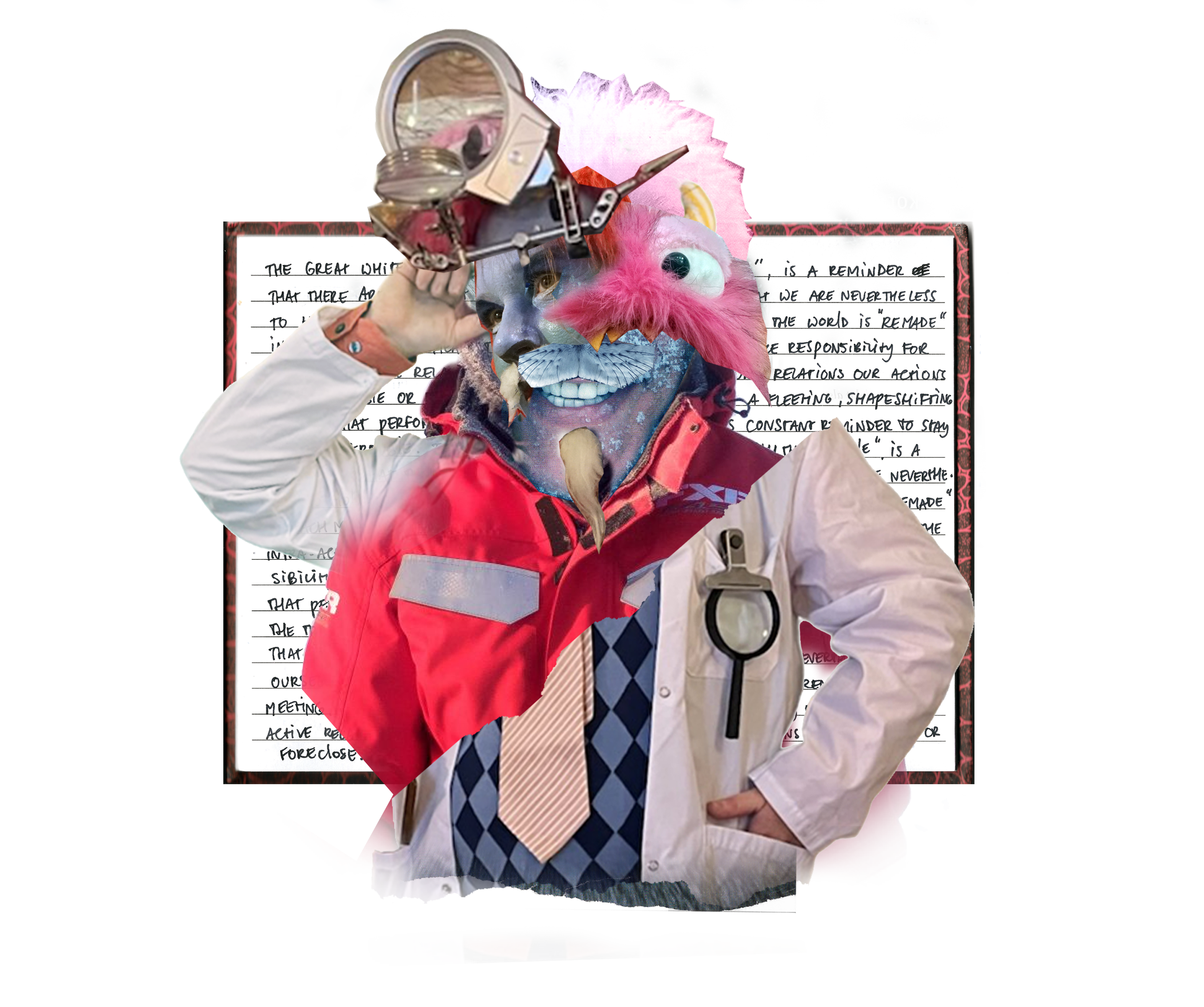Ethics of Response-Ability: Difference between revisions
No edit summary |
No edit summary |
||
| Line 6: | Line 6: | ||
Non-Indigenous researchers engaging any form of generative ontologies need to take responsibility for whichever option they choose: | Non-Indigenous researchers engaging any form of generative ontologies need to take responsibility for whichever option they choose: | ||
'' | |||
1. engaging Indigenous scholarship, or | 1. engaging Indigenous scholarship, or | ||
2. not engaging Indigenous scholarship | 2. not engaging Indigenous scholarship | ||
'' | |||
Neither option is “innocent.” There are no "easy ways out". | Neither option is “innocent.” There are no "easy ways out". | ||
Revision as of 10:06, 27 February 2025

You have encountered a “Great White Beast”, a fleeting, shapeshifting figure that performs the world as indeterminate.
The ethics involved when it comes to drawing from research paradigms that consider the world as indeterminate, intra-dependent and ontologically generative, cannot be resolved through ‘right’ ways of doing things.
Non-Indigenous researchers engaging any form of generative ontologies need to take responsibility for whichever option they choose: 1. engaging Indigenous scholarship, or
2. not engaging Indigenous scholarship Neither option is “innocent.” There are no "easy ways out".
In dealing with this Great White Beast, I have chosen to rely on a very selective body of western scholarship to formulate ways of thinking outside of the classic western subject/object divide and not appropriate Indigenous scholarship in formulating my own understanding of ontologically generative paradigms.
Where appropriate, I have placed my journey in dialogue with Indigenous scholarship.
"Return" to cut 3 to start tracing the Bearwatch project.